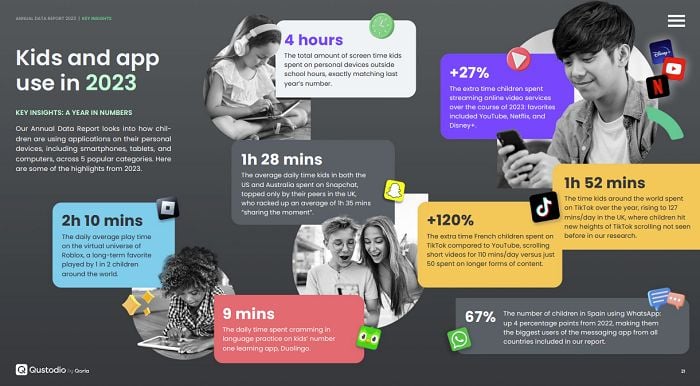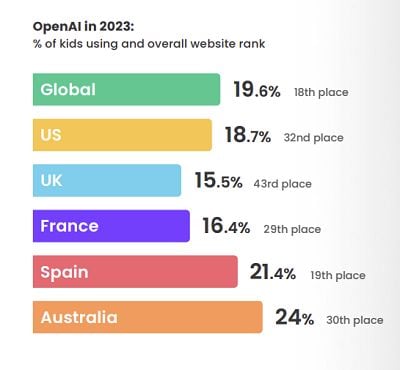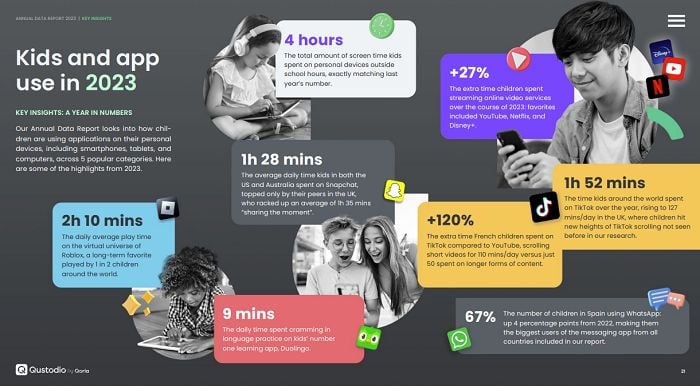Engagement trends, in all forms, are evolving, with more of us spending more of our time online, and interacting in new environments, be it in AR, VR, through AI-influenced means, and more.
Each of which will likely have the biggest impact on the next generation of consumers, in defining how they engage with each other moving forward. It’s this younger cohort that will dictate the next stage of connection, and with that in mind, this new report from digital wellbeing provider Qustodio covers some interesting ground, in analyzing teen user trends from different regions.
Qustodio’s “Born connected: The rise of the AI generation” spans 115 pages, so there’s a heap to take in, with the results based on app and online tool usage surveys conducted with over 400,000 families with children aged 4-18.
You can download the full report here, but in this post, we’ll take a look at some of the highlights.
First off, the report looks at where kids are spending their time online, and how they’re engaging in different apps.

As per the above notes, kids are spending 2 hours a day, on average, using Roblox, the popular gaming platform, which, in some ways, is a precursor to the metaverse, in regards to how users interact via digital avatars in 3D environments.
That’s a good indicator for Meta’s future ambitions on this front, though it will take some time for this user group to be in the core market for its metaverse offerings.
But the most notable data point for social media marketers is the almost 2 hours that kids are spending on TikTok every day.
The full stats on this show that children aged 4 to 18 spent, on average, 112 minutes per day in the app in 2023, up from 107 minutes in 2022.
Which made TikTok the most popular social media platform by far in this group.

As you can see in this chart, Instagram was the next most popular social app among youngsters, followed by Facebook, and somewhat surprisingly, Pinterest.
Though it is also worth noting that Snapchat is not in the “Social Media” category here, but under “Communication” instead, where the data indicates that it would have been the second most popular social media app.

The trends here are not overly surprising, but it is interesting to see the amount of time that kids are spending in each app, and to consider what these trends might mean for future interactive behaviors.
The report also looks at the rising use of generative AI, and specifically, how many young users have accessed OpenAI’s text and image generation tools.

As per the above, almost 20% of kids visited the OpenAI website in 2023, making it the 18th most visited site among this cohort for the year.
The full report also looks at parental supervision, and how parents are looking to keep their kids safe in different apps, as well as gaming trends, education apps, and more.
It’s an interesting dive into the key engagement behaviors among younger users, and if you are looking to target this segment, it’s worth considering where they’re engaging, and how you can reach them with relevant promotions.
You can download the full Quistodio “Born Connected” report here.



